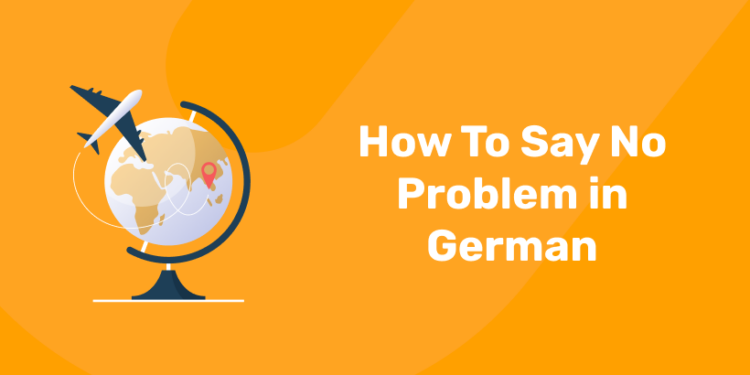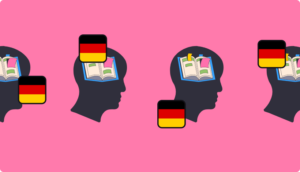Table of Contents
Are you planning to visit a German speaking country? Or are you studying German and want to meet fluent speakers and engage in conversation? Knowing German greetings and farewells—and the etiquette that goes with them—will politely open the door to interacting in the German language. In German, there are greetings and farewells for both formal and informal situations.
Master the German Language with Entri App! Click Here for Free Trial Class!
How To Say No Problem in German
1.Kein Problem (No problem)
2. Keine Sorge (Don’t worry)
Although not a direct translation of “no problem”, the phrase is often used in similar situations. It’s a comforting expression that tells someone not to worry about a situation. You can use it when someone is apologizing for something minor or expressing concern about an upcoming event:
3. Keine Ursache (You’re welcome)
This expression is commonly used in response to “Danke” (thank you). It’s a bit more formal than “Kein Problem”, but still good for everyday situations. You may hear this from a merchant after thanking him for his help, or from a colleague who helped you with a task:
4. Gern geschehen (You’re welcome)
This is another way to say you are welcome in German. It is a bit more formal than “Keine Ursache” and expresses a sense of pleasure in being able to help. You can use it when you have done something significant for someone and want to emphasize that it was a pleasure to help you:
Master the German Language with Entri App! Click Here for Free Trial Class!
5. Nichts zu danken (Nothing to thank for)
This phrase is used to belittle what you have done when someone is thanking you. It’s a polite way of saying “it was nothing” or “don’t mention it”.
You can use this when you do a small favor for a friend or colleague and they express more gratitude than you think is necessary:
6. Passt schon (It’s fine)
This informal expression is used to express that everything is fine or that there is no problem. You can use it when someone apologizes for a minor mistake or when they ask you if you’re sure about something:
7. Nicht der Rede wert (Not worth mentioning)
Again, this phrase is used to downplay the importance of something you’ve done when someone thanks you.
It’s similar to “Nichts zu danken” but a bit more formal. You can use this in a work environment when a colleague thanks you for your help on a project, or in any situation where you want to be humble about your contribution:
8. Kein Thema (No problem)
This expression is very similar to “Kein Problem” and can be used interchangeably in most situations. It is a bit more informal and is very popular with younger speakers. You can use this when a friend asks if they can borrow something, or when someone apologizes for a small inconvenience:
9. Null problemo (No problem) (informal)
This is a very casual, slightly playful way of saying “no problem”. It is a mixture of German and pseudo-Italian and is especially popular among younger people. You would only use it with friends or in very casual situations. It’s perfect for light-hearted responses to small favors or apologies:
Example Sentences in German
1: How do you say "Good Morning" in German?
2: What does the German verb “essen” mean?
3: What is the German word for "blue"?
4: What does “Schule” mean in English?
5: How would you say "How are you?" formally in German?
Get Your German Language Proficiency Score
- Ich habe kein Problem damit.
I don’t have a problem with this., I have no problem with this.
- Kein Problem!
No problem at all!, No problem!, No worries!
- Das ist kein Problem.
It’s no problem., That’s no problem., It’s not a problem.
- Kein Problem! Wir können Ihnen helfen.
No problem, we can help you.
- Kein Problem! Wir können euch helfen.
No problem, we can help you.
- Kein Problem! Wir können dir helfen.
No problem, we can help you.
- Wie ich schon sagte: Kein Problem!
Like I said, no problem.
- Wenn es keine Lösung gibt, dann gibt es kein Problem.
If there’s no solution, then there’s no problem.
- Kein Problem. Wirklich nicht.
It’s no problem, really.
- Kein Problem, ich verstehe.
No problem, I understand.
- Kein Problem.
No problem.
Best Way To Learn German
The best way to learn German is different for each student, but it requires persistence and motivation, no matter which method they choose. Fortunately, English and German share a common linguistic ancestor as two West Germanic languages. This leads to some commonalities between the two, but they still differ in many key ways.
To begin your language learning journey, determine your goals. Do you want to be able to watch German movies without subtitles? Maybe you are planning a semester study abroad in Germany. Do you have German-speaking friends you would like to chat with? Maybe you just want to add German to your portfolio of spoken languages.
Use your goals to create a path to learning German. This can help you determine the range of where to start and stop studying. For example, if you are going to have a conversation with your German friends, you can start by familiarizing yourself with common phrases. However, if your plans include language immersion in your curriculum, you would probably benefit from starting with the basics, such as the alphabet, grammar, and sentence structure.
Evaluating your aspirations will also help you determine the right way to learn German. If you want to speak the language occasionally in a low-stakes environment, an app or podcast might work for you. On the other hand, if you are moving to Germany for an extended period of time, it is probably ideal to enroll in a formal German language program.
Master the German Language with Entri App! Click Here for Free Trial Class!












